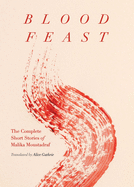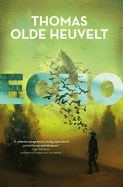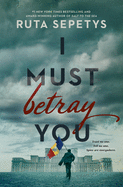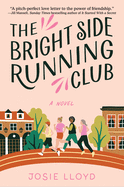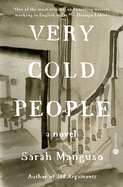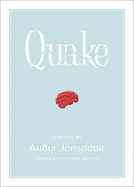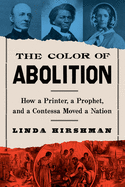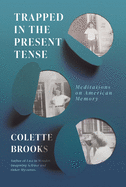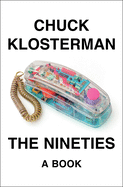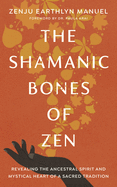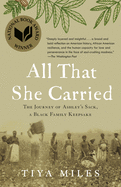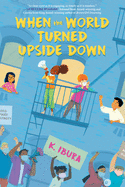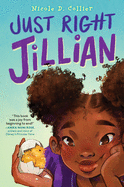Friday, February 11, 2022
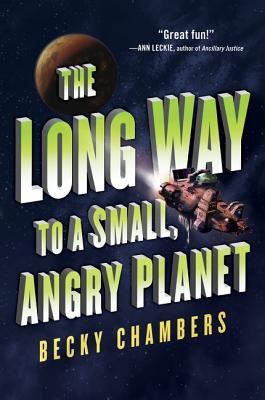 When I am browsing for a book to read, the first line determines if I will read any further (although once I bought a book based only on its title--The Long Way to a Small, Angry Planet by Becky Chambers [Harper Voyager, $17.99]--and was delighted with my recklessness). Lately I've found some books whose first lines intrigued me enough to keep going.
When I am browsing for a book to read, the first line determines if I will read any further (although once I bought a book based only on its title--The Long Way to a Small, Angry Planet by Becky Chambers [Harper Voyager, $17.99]--and was delighted with my recklessness). Lately I've found some books whose first lines intrigued me enough to keep going.
"I am your maid.... I know so much about you. But when it comes down to it: what is it you know about me?" --The Maid by Nita Prose (Ballantine, $27)
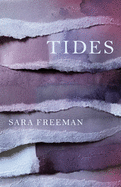 "On the long bus journey out, she doesn't cry or even have a single thought that she can name. She watches the dark impossibility of the road instead." --Tides by Sara Freeman (Grove, $26)
"On the long bus journey out, she doesn't cry or even have a single thought that she can name. She watches the dark impossibility of the road instead." --Tides by Sara Freeman (Grove, $26)
"On October 24, 1960, a composer named Charles Dumont arrived at the posh Paris apartment of Edith Piaf with fear in his heart and songs in his briefcase." --The Power of Regret by Daniel H. Pink (Riverhead, $28)
And a sneak peek at a couple of titles coming soon that you'll want to pre-order:
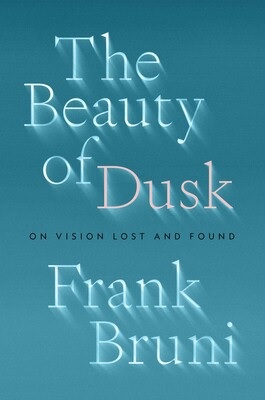 "They say that death comes like a thief in the night. Lesser vandals have the same MO. The affliction that stole my vision, or at least a big chunk of it, did so as I slept. I went to bed seeing the world one way. I woke up seeing it another." --The Beauty of Dusk by Frank Bruni (Avid Reader, $28, March 1)
"They say that death comes like a thief in the night. Lesser vandals have the same MO. The affliction that stole my vision, or at least a big chunk of it, did so as I slept. I went to bed seeing the world one way. I woke up seeing it another." --The Beauty of Dusk by Frank Bruni (Avid Reader, $28, March 1)
"When I am kidnapped, it does not happen in an alleyway. It does not happen in the middle of the night. It does not happen when I am alone." --Four Treasures of the Sky by Jenny Tinghui Zhang (Flatiron, $27.99, April 5)
Blood Feast: The Complete Short Stories of Malika Moustadraf
by Malika Moustadraf, transl. by Alice Guthrie
Blood Feast: The Complete Short Stories of Malika Moustadraf is a crystalline collection by defiant Moroccan writer Malika Moustadraf (Wounds of the Soul and the Body), who died in 2006 at 37. Moustadraf's piercing 14 stories here, which challenge patriarchal expectations of gender and sexuality, barely fill 100 pages. Award-winning translator and professor Alice Guthrie enhances that brevity with extensive literary and historical context, providing a meaningful conduit to the work of "a gifted maverick writer in her ascendency."
Moustadraf's women struggle for agency in impossible situations. A discarded young wife can't feed her baby in "Woman: A Djellaba and a Packet of Milk"; a daughter witnesses her violent father's Saturday parade of women in "Thirty-Six"; marriage is a man's transaction in "A Woman in Love, a Woman Defeated"; a passenger on an overcrowded bus is sexually abused in "Claustrophobia"; and wife-beating equals love in "A Day in the Life of a Married Man." The titular "Blood Feast"--prefaced by a letter from Moustadraf to her sister, who donated a kidney to Moustradraf--expands into a diatribe against a corrupt medical system. "Just Different" features an intersex/trans protagonist--a rare surprise in Arab literature--struggling to live in the face of relentless persecution.
Referring to her work as "literary recovery of a foundational body of work that had all but disappeared," Guthrie meticulously documents "Moustadraf's vanguard status" in more than 50 pages of comprehensive backmatter that includes an essential afterword. Guthrie spent six years on this "first ever full-length translation of [Moustadraf's] work." Its overdue debut inspires further poignancy when Guthrie asks, "What would she have gone on to write had she survived?" --Terry Hong, Smithsonian BookDragon
Discover: 14 stories by the late Moroccan author Malika Moustadraf challenge patriarchal expectations of gender and sexuality, enhanced by Alice Guthrie's translation.
The Bright Side Running Club
by Josie Lloyd
Josie Lloyd (co-author of Come Together) delivers a witty, warmhearted story of a woman dealing with breast cancer treatment alongside a group of unlikely new friends in The Bright Side Running Club. Keira is happily married, a mother of three and the owner of a thriving small business when a breast cancer diagnosis upends her comfortable life. Somewhat reluctantly, she joins a running group made up of women who also have cancer. To her surprise, not only does running help her feel better physically, but her new friends provide deep empathy, moral support and much-needed humor as they all face cancer's cascading effects on their lives.
Lloyd, herself a breast cancer survivor, vividly captures the early stages of diagnosis and treatment: the physical details as well as the maelstrom of emotions. She skillfully depicts the effects of Keira's diagnosis on the important relationships in her life (her husband, children, mother and colleagues) as well as how she learns to advocate for herself both in and out of the treatment room. Meanwhile, Keira suspects her longtime business partner of some shady dealings, and her new friends struggle with their own treatments and other challenges. The women band together in sometimes surprising ways to support one another, and they organize a charity run in honor of one of their own.
Full of wry humor, despite the heavy subject matter, The Bright Side Running Club is a clear-eyed, ultimately hopeful story and a testament to the power of female friendships. --Katie Noah Gibson, blogger at Cakes, Tea and Dreams
Discover: Josie Lloyd brings warmth and humor to the story of a woman dealing with breast cancer treatment with the help of a few new friends.
Very Cold People
by Sarah Manguso
"Snowfalls have unique bouquets," Sarah Manguso writes in her first novel, Very Cold People. "Snow isn't just frozen water; it carries a remnant of the sky." Manguso's book hosts impressions so immediate that readers may half wonder if the childhood depicted on the page is theirs.
Ruth, who narrates Very Cold People, grew up an only child in the 1980s in the (fictional) colonial town of Waitsfield, Mass., whose "historically correct" paint colors are considerably more subdued than its class distinctions. Ruth, a devotee of "playing at belonging," takes readers through the childhood events that have marked her--fleeting occasions like a trip to a fancy restaurant in Boston with family, and major developments like her move at age 13 to a new Waitsfield home (historically significant house, better school zone).
Manguso, whose previous books are works of poetry and nonfiction (Ongoingness; 300 Arguments), is a sensational writer (her school auditorium "was like the inside of a slaughtered animal, all oxblood paint and maroon velveteen"). But with a hundred-odd pages behind them, readers may well wonder: Is Very Cold People truly a novel, as advertised? Manguso certainly massages her themes (social and familial alienation, predatory men who are trusted members of the community), but as vignette-like paragraphs skip by, each bluntly delineated from the next by a page break, there seems to be no forward momentum beyond the ticking of time.
Readers should hang in there. Manguso's accreting vignettes retroactively assume a shape toward the end of Very Cold People, when something happens that fulfills every novel's basic requirement: life for at least one character in it irrevocably changes. --Nell Beram, author and freelance writer
Discover: Sarah Manguso's breathtakingly well-written first novel seems like a grab bag of the narrator's impressions of her childhood, until its ending casts everything that precedes it in fresh light.
Quake
by Auður Jónsdóttir, transl. by Meg Matich
Quake, by Icelandic Literary Prize-winning author Auður Jónsdóttir (The People in the Basement), is an engrossing, multilayered mystery in which memories--imagined, erased and recovered--determine the future of a fractured family. Jónsdóttir introduces the protagonist in various scenarios in the novel's opening--anonymous in the brief first chapter, waking from an accident in the second and hospitalized in chapter three--as if immediately signaling the unreliability of knowing and remembering.
Saga is the mother of three-and-a-half-year-old Ívar. He goes missing when Saga, as later revealed, has three sequential epileptic seizures. Ívar is quickly retrieved and placed safely with his father, but when Saga returns to her apartment, she can't understand why her husband lives somewhere else. She can "conjure the good" when trying to recall their past, but attempts to access anything difficult result in "stabbing pain." Betrayed by her mind and body, she can't be left alone--and she can't be trusted with Ívar. Understanding and recovery require the untangling of decades of labyrinthine secrets, hidden especially between parents and children.
Originally published in Iceland in 2015 and adapted into a lauded film, Quake is Jónsdóttir's first novel to be translated into English. It is an intimate collaboration with translator and poet Meg Matich. Matich notes that "Icelandic is a precious language," spoken by 350,000 people. With empathic insight and precision, Matich enables readers access to what she calls "Auður's floating, feral Icelandic." --Terry Hong, Smithsonian BookDragon
Discover: Icelandic novelist Auður Jónsdóttir makes her English-language debut with a searing examination of what happens to an already fractured family after a woman's memory-scattering, epileptic collapse.
Mystery & Thriller
Echo
by Thomas Olde Heuvelt
Two climbers attempt to scale a mysterious and foreboding mountain in the Swiss Alps, only to stumble across an unspeakable horror in Echo by Dutch horror writer Thomas Olde Heuvelt (Hex). Nick Grevers is an experienced climber and travel journalist who learns of a technically challenging peak called Le Maudit, tucked deep in the Alps. Against all advice from guidebooks and locals to stay away, Nick and his buddy Augustin set out to evaluate this exciting and unexpected find. But a terrible accident leaves Nick hideously disfigured and Augustin missing and presumed dead--and the horror is just beginning.
Nick wakes from a coma with no memory of the events on the Maudit, his face swathed in bandages to help heal--and hide--the extent of his facial injuries. They are almost too much for his boyfriend, Sam Avery, to bear. Slowly coming to grips with Nick's new condition, Sam senses something is very off about his formerly beautiful beau when people around Nick start dying unexpectedly. It becomes plain that Nick wasn't meant to come back down the Maudit alive, and now he's brought something back with him.
Masterfully, Heuvelt creates horror that is both fantastical and naturalistic in scope. The catty and clever Gen Z dialogue is often quite funny, but make no mistake: the creep factor is high in Echo, with an opening chapter best saved for daylight hours. --Peggy Kurkowski, book reviewer and copywriter in Denver, Colo.
Discover: The diabolical power of a remote Alpine peak infiltrates a climber, setting in motion a horrifying chain of events.
History
The Color of Abolition: How a Printer, a Prophet, and a Contessa Moved a Nation
by Linda Hirshman
Linda Hirshman (Victory: The Triumphant Gay Revolution) has researched another fascinating aspect of social history in The Color of Abolition: How a Printer, a Prophet, and a Contessa Moved a Nation. Much has been written about Frederick Douglass and William Lloyd Garrison and their impact on the abolition movement. But Hirshman has uncovered an overlooked woman in the movement: socialite Maria Weston Chapman, known as "the Contessa" to Boston society. When Weston Chapman first visited the Boston Female Anti-Slavery Society, other members thought her a spy because "No one that well dressed had ever shown an interest in their movement." Weston Chapman, however, became a key player in Bostonian abolition groups and worked closely with Garrison and Douglass as an editor of the National Anti-Slavery Standard newspaper.
Analyzing the racist and classist overtones in internal battles within the abolition movement, Hirshman has created a brisk and intriguing history of it from the 1830s to 1860s. She explores the lives of three key players--Douglass, Garrison and Weston Chapman--and how they influenced the Massachusetts chapter of abolitionists, and society at large. As Hirshman points out, abolition had astonishingly rapid success on the scale of social change: in less than 20 years, the movement morphed from a dozen white men gathering in Boston to Black and white men and women across the nation uniting to protest slavery. Those interested in history or social justice movements are sure to appreciate the combination of the two in The Color of Abolition. --Jessica Howard, bookseller at Bookmans, Flagstaff, Ariz.
Discover: A fascinating history of the abolition movement, as seen through the eyes of three key players.
Social Science
Trapped in the Present Tense: Meditations on American Memory
by Colette Brooks
Before apps like Pinterest, there were scrapbooks. That's the format that comes to mind when considering the blend of political and social commentary and memoir that is Colette Brooks's idiosyncratic and evocative Trapped in the Present Tense: Meditations on American Memory. Whether it's gun violence, nuclear war or government incursions on Americans' privacy, Brooks's concerns are broad and vital. Recognizing that the "hard and fast divisions of the old days" between "number people" and "story people" are "no longer useful," she brings to bear both techniques in her attempt to illuminate some of the darker corners of American life.
Brooks (In the City: Random Acts of Awareness) applies this complementary technique to reflections on other pressing subjects: what she calls our "casual habituation to conflict" that "has helped to create a vicarious warrior culture in which most of us just watch from afar," is illustrated by the account of an errant Apache helicopter attack in Baghdad in July 2007, a story that sits adjacent to the recollections of a man named Jimmy Nelson about his service in the Navy in occupied Japan after atomic bombs devastated Hiroshima and Nagasaki. The significance of Nelson's account becomes clear only at the end of the book, in a section that pairs a series of arresting snapshots with Brooks's penetrating and poignant commentary.
In both content and format, Trapped in the Present Tense is a book that's well suited to this age of short and fragmented attention spans. Readers receptive to Colette Brooks's preoccupations will find much that's informative and moving here. --Harvey Freedenberg, freelance reviewer
Discover: Colette Brooks cogently assesses an array of modern American problems through the lens of history and recollection.
The Nineties
by Chuck Klosterman
Ah, the 1990s, brought to you by Nirvana, Generation X, the Gulf War, Seinfeld, Fox News, Pulp Fiction and the Monica Lewinsky scandal. In The Nineties, de facto cultural historian and affable know-it-all Chuck Klosterman dissects the decade's most iconic people, events and artifacts, using his customary high-energy prose, sidelong point of view and delight in the preposterous.
Each chapter in The Nineties reads like a work of long-form reporting, as in the exploration of Ross Perot's possibly history-altering role in the 1992 presidential election and the examination of technology in the '90s, when the "concept of buying a new phone every other year would have seemed as crazy as installing a new toilet every other Thanksgiving." A wily and pitiless social critic operating from a position of rapt astonishment, Klosterman takes every opportunity to show how one-time cultural high-water marks have been reappraised: "Modern people," Klosterman writes, "hate American Beauty for the same reason people in 1999 loved American Beauty: It examines the interior problems of upper-middle-class white people living in the late twentieth century."
Born in 1972, Klosterman (Raised in Captivity) reached the age of majority at the start of a decade in which "the worst thing you could be was a sellout.... Selling out meant you needed to be popular, and any explicit desire for approval was enough to prove you were terrible." Since it's no longer the '90s, Klosterman will presumably find a way to live with himself should his boffo essay collection become deservedly popular. --Nell Beram, author and freelance writer
Discover: In his shrewd and wry biography of the 1990s, Chuck Klosterman celebrates a famously sketchy decade without quite redeeming it.
Religion
The Shamanic Bones of Zen: Revealing the Ancestral Spirit and Mystical Heart of a Sacred Tradition
by Zenju Earthlyn Manuel
Words are merely a tool for the intellect, and it is not often that they are able to articulate the subtlety of feeling, depth of truth and breadth of love that make up moments of existence, and the fabric of natural life. Fortunately for readers, Zenju Earthlyn Manuel, in her bright and ethereal The Shamanic Bones of Zen, brings together the perfect blend of literary skill, Buddhist teachings and personal insight, providing readers with a rare moment when words reach farther, wider and deeper than they ever knew possible.
A magnificent guide through the world of Zen Buddhism, Manuel points toward meaning without lifting a finger, touches on concepts without leaving her prints, and breathes out wisdom without needing to exhale. What makes Manuel such an important player in the world of Zen is her understanding that Zen does not offer a pathway toward something new. Rather, it provides a means to learn more about all that is already inside oneself. Manuel opens this part of herself to the world in The Shamanic Bones of Zen, and what readers find there is a transcendent passion for ritual, for meditation, for ancestry, for childhood and for the magic that has grown harder and harder to find in Buddhist religion and scholarship. This is a work that cannot be merely observed, but in which one must be engaged--for, like a Zen ritual, Manuel's work will speak only to those who have given themselves to listen. --Eamon Stein, reader, writer and filmmaker in Seattle, Wash.
Discover: The Shamanic Bones of Zen paints a bright and ethereal portrait of Zen Buddhism's philosophical and ritualistic practices.
Now in Paperback
All that She Carried: The Journey of Ashley's Sack, a Black Family Keepsake
by Tiya Miles
Tiya Miles (The Dawn of Detroit; Ties that Bind), a professor of history at Harvard University, does a difficult task incomparably well in the National Book Award-winning All that She Carried: The Journey of Ashley's Sack, a Black Family Keepsake. With gentleness and historical acumen, Miles explores the history of this sack, and why it is important in larger terms as part of African American history.
In 1921, Ruth Middleton embroidered a sack that had belonged to her grandmother Ashley, listing what the sack originally contained. Her great-grandmother Rose, an enslaved woman, gave the sack to her daughter Ashley when the nine-year-old girl was sold away from her in 1850s South Carolina. Miles carefully researches the items mentioned in the embroidery: a dress, a handful of pecans, a lock of Rose's hair, "my Love always." Miles explores what these would have meant to both Ashley and Rose, and how Rose was doing her best to care for her daughter, even when the terrible system of chattel slavery attempted to thwart Rose's basic humanity.
Little is known about Rose or Ashley's early lives, but Miles has found many contemporary accounts to enlighten readers as to what may have gone on in the lives of enslaved women of that era. And she elucidates how a sack was specifically important. As Miles says, "African American things had little chance to last.... How could people who were property acquire and pass down property?" All that She Carried will transport readers to difficult times in American history, and make them think more carefully about all the physical goods they take for granted in their day-to-day lives. --Jessica Howard, bookseller at Bookmans, Flagstaff, Ariz.
Discover: In this fascinating history, Harvard history professor Tiya Miles explores the path a cotton sack took through four generations of Black women.
Children's & Young Adult
I Must Betray You
by Ruta Sepetys
Seventeen-year-old Cristian Florescu realizes that "a lie is like a snowball. It rolls, becomes bigger, heavier, and eventually, it's difficult to lift." Cristian is attempting to carry a lie that has the power to destroy lives and, as he'll soon discover, he isn't the only one. Ruta Sepetys (The Fountains of Silence) delves into the dark world of 1989 Communist Romania, passionately telling the harrowing story of Cristian and a nation near its breaking point.
Cristian is a typical teenager with aspirations (he dreams of being a writer) and a secret crush--if only he could happen upon Liliana Pavel, then he could walk her home. But the rest of life isn't typical for him or for other Romanians. They have very little to eat, have access to electricity and water only sporadically, must stand in long lines for everything, and spies lurk everywhere. The informers are just waiting for an opportunity to catch fellow citizens unfaithful to despot Nicolae Ceauşescu. But when Cristian is blackmailed into spying, he decides it's time for the world to know what's happening in his country.
Sepetys keeps readers riveted to this vivid, heartbreaking and compelling novel, locked into every meticulously researched detail. I Must Betray You demands a full investment from its audience--through poetic writing, sympathetic characters, revolutionary plot and pacing, it grips the heart and soul and leaves one breathless. --Jen Forbus, freelancer
Discover: This chilling thriller by a master of YA historical fiction takes place in the darkness of Communist Romania on the brink of revolution.
When the World Turned Upside Down
by K. Ibura
It doesn't take a pandemic to introduce drama into the lives of middle-schoolers: they already have plenty going on. It's all there in K. Ibura's When the World Turned Upside Down, a virtuosic middle-grade novel in which four tweenagers who live in the same apartment building must find new ways to relate to their families and to each other after Covid-19 suddenly closes their school.
Life is always difficult for Liam, who has panic attacks and must tend to his younger siblings while their single mom works. For Ben, being stuck indoors means that he can't escape his parents' constant arguing. Ai wishes she saw more of her parents, but her doctor father is always at the hospital and her depressed mother won't leave her bedroom. This is all the harder for Ai because she isn't speaking to her best friend, the conflicted Shayla, who, before their school shuttered, seemed to prefer two other girls' company.
With her first book for kids, Ibura has created a higher-order middle-grade novel by showing a cast transcending their cohort's reputation for self-absorption: together the friends, who are from a range of backgrounds, help a sick neighbor, form their building's "antivirus team" and, after they learn of George Floyd's murder, take a stand against racism. Ai thinks at one point, "Even if her family had lost the ability to show up for one another, she could show up for her neighbors. She had the power to make people's hard times a little easier." So does When the World Turned Upside Down. --Nell Beram, freelance writer and YA author
Discover: In this bravura middle-grade novel, four friends work through some interpersonal problems while joining forces to help others in their apartment building during the Covid-19 pandemic.
Just Right Jillian
by Nicole D. Collier
Former elementary school teacher Nicole D. Collier's debut book, Just Right Jillian, offers an inspiring and inviting tale for middle-grade readers about an African American girl named Jillian.
Fifth-grader Jillian is shy, uncertain and, a year later, still grieving the loss of her grandmother. Jillian often lets her opinions, ideas and thoughts go unheard because she is afraid of standing out. Then, she loses a class competition because she doesn't speak up. When a bully proclaims Jillian will never be a winner, Jillian promises herself and Grammy that she will find her voice and break out of her shell--just like the chicks her class is currently incubating. Jillian, with less than a month to prepare, works hard to compete in the school-wide Mind Bender competition with the goal of beating Rashida, her "Sworn Enemy" and "Foe."
Just Right Jillian is broken up into approachably short chapters, with accessible language for children on the younger end of the middle-grade spectrum. It covers topics such as grief, friendship, speaking up, shyness and not judging anyone without getting to know them first, making it a perfect book for any sensitive, creative, insecure child who might also fear being visible. Collier's many funny metaphors about chicks and their hatching process should keep readers laughing as it connects them to Jillian and her attempts to break out of her own shell. Just Right Jillian shows children how to stand out and show up for themselves. --Natasha Harris, freelance reviewer
Discover: In this inspiring and sweet story, a fifth-grade girl learns how to break out of her shell and find her voice.
| Advertisement Meet belle bear! |


